Text
Prabhu Shriram wishes everyone a Happy and Prosperous New Year 2024. May your New Year be filled with unlimited peace, joy and the fragrance of ultimate bliss.
#happynewyear#newyear2024#newyearwishes#jpsr#year2024#prabhushriram#newyearsale#gift#premiumfragrance#fragrance#incense#newyeargift
0 notes
Text
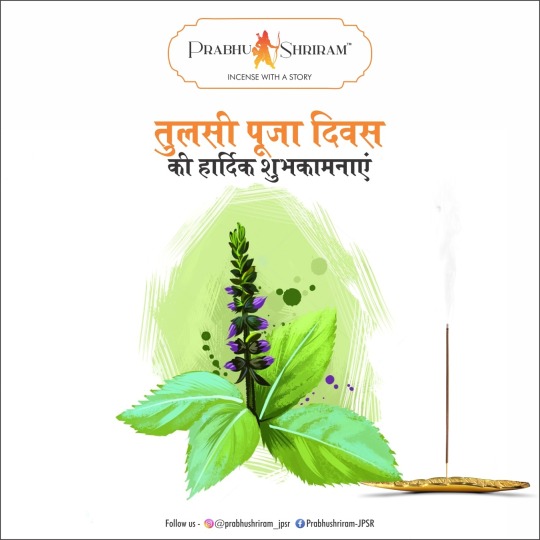
Partaking in Tulsi puja is believed to invoke divine blessings, ushering in prosperity and nurturing spiritual growth. This sacred ritual is revered as a powerful shield against negative energies, cultivating a harmonious atmosphere within the household. The sacred Tulsi leaves serve a pivotal role in an array of religious ceremonies and rituals, intricately weaving into the spiritual fabric of Hindu traditions. These ceremonies, enriched by the sacred essence of Tulsi, transcend the mundane, symbolizing a profound connection with the divine and fostering a sense of sanctity within the tapestry of Hindu spiritual practices. The veneration of Tulsi extends beyond the physical realm, symbolizing a deeper reverence for nature, devotion to the divine, and the pursuit of a balanced and spiritually fulfilling life—a timeless tradition that resonates with the essence of Hindu spirituality.
0 notes
Text
0 notes
Text

0 notes
Text
0 notes
Text
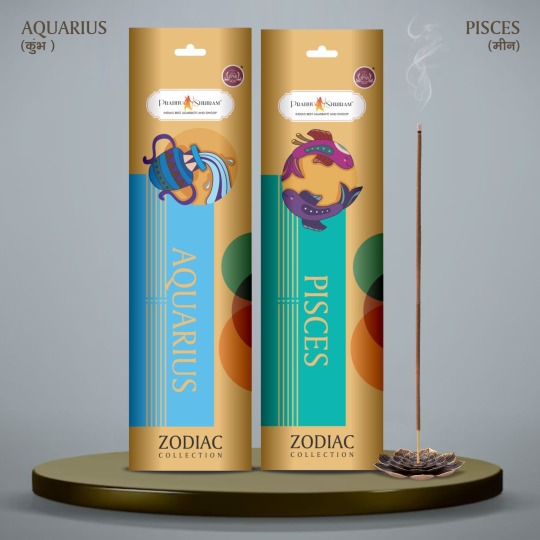
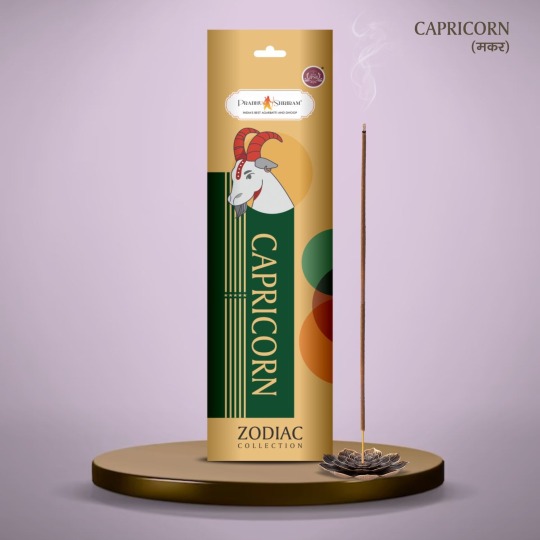

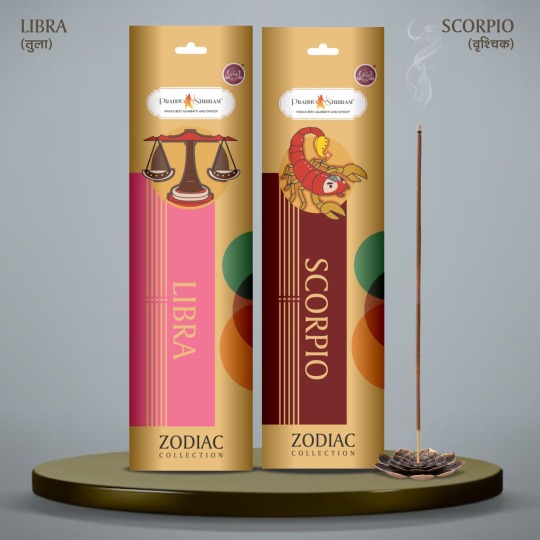
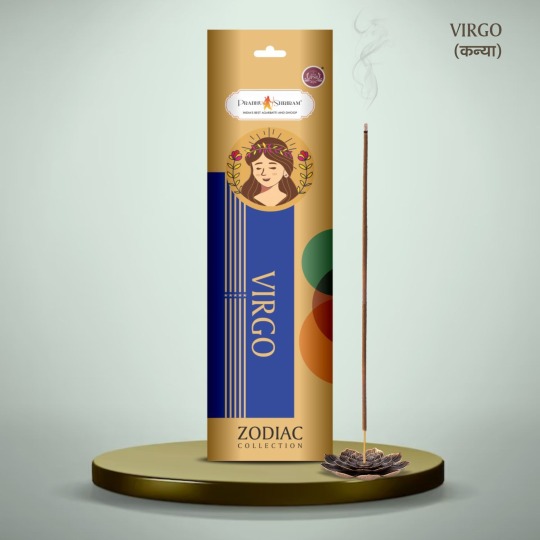
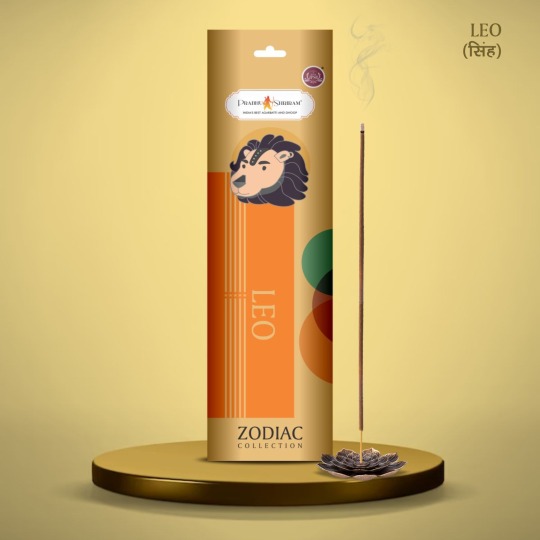



0 notes
Text
0 notes
Text
0 notes
Text
0 notes
Text
0 notes
Text
0 notes
Text
0 notes
Text



LIfe & God Collection Dhoop
0 notes
Text
Annakut Festival in India: A Celebration of Divine Abundance
Reading time-4 mins
India, a land of diverse cultures and traditions, is home to many festivals reflecting the rich display of its heritage. One such festival that holds immense significance, especially among the followers of Hinduism, is Annakut. Also known as Govardhan Puja or Annakut Utsav, this festival is celebrated with great enthusiasm and devotion across the country.
The Annakut Festival, which translates to "a mountain of food," is observed to express gratitude to Lord Krishna for his divine protection and to celebrate the abundance of nature's harvest. It symbolizes the importance of agriculture and the relationship between humans and the environment. The festival also highlights the spirit of community and sharing, emphasizing the values of unity and cooperation.
The origins of the Annakut festival are deeply rooted in Hindu mythology, particularly in the Bhagavata Purana. The central narrative revolves around Lord Krishna's victory over Indra, the king of the gods, and the subsequent worship of Mount Govardhan.
According to the legend, the residents of the village of Gokul used to perform elaborate rituals to appease Lord Indra, seeking his blessings for a bountiful harvest. However, Lord Krishna, in his wisdom, suggested that they should instead worship the Govardhan Hill, which provided them with fertile soil and abundant resources.
In defiance of Indra's wrath, the people of Gokul followed Krishna's advice and arranged a grand feast, creating a mountain of various food items and offerings. Enraged by their disobedience, Indra unleashed a powerful storm, but Lord Krishna lifted the Govardhan Hill on his little finger to shield the villagers from the torrential rains.
Witnessing the unparalleled devotion and strength of Lord Krishna, Indra conceded defeat. The Annakut festival commemorates this event and highlights the importance of recognizing and appreciating the gifts bestowed by nature.
Annakut is celebrated following the main Diwali festivities, commonly known as the fourth day of the Diwali period. This day falls on the first lunar day of the bright fortnight (Shukla Paksha) in the Hindu month of Kartik.
The Annakut Festival stands as a testimony to the deep-rooted cultural and spiritual fabric of India. It commemorates a mythological event and serves as a reminder of the harmonious relationship between humans and nature.
Celebrating the diversity of our rich culture, Prabhu Shriram- Incense with a Story promotes and fosters a sense of unity, gratitude, and communal harmony with every incense. Come and experience the stories of INDIA wrapped in revolutionary & innovative products with Prabhu Shriram.
0 notes
Text
The Spiritual Meaning of Namaste
Reading time- 4 mins
In the world of spirituality, many beautiful and profound practices carry deep meaning and significance. One such practice is "Namaste." Derived from ancient Indian traditions, Namaste is more than just a greeting; it's a powerful symbol of respect, unity, and spiritual understanding. In this blog, we will explore the spiritual meaning of Namaste and how it can enrich our lives with knowledge and insights.
The Origin of Namaste
Namaste, pronounced "na-mah-stay," finds its roots in Sanskrit, the classical language of ancient India. The word is a combination of two Sanskrit words: "Nama," which means "to bow," and "Te," which translates to "you." Together, Namaste can be understood as "I bow to you" or "I honor the divine in you."
The Spiritual Essence of Namaste
At its core, Namaste recognizes the presence of the divine within each of us. It's a profound acknowledgment of the inner light or the soul (Atman in Hinduism) that resides in all living beings. When you greet someone with Namaste, you are essentially saying, "I honor the divine essence within you." This act of recognition fosters a sense of interconnectedness and unity.
Joining both hands ensures touching the tips of all the fingers together, which are linked to pressure points in the eyes, ears, and mind. Pressing them together is said to activate these, helping us remember that person for a long time.
Namaste embodies the idea of equality. In a world where hierarchies often dictate our interactions, this gesture reminds us that every individual, regardless of their social status, race, or background, is deserving of respect and honor. It levels the playing field and promotes humility.
The act of bringing one's hands together at the heart center and bowing the head slightly during Namaste is not just a physical gesture; it's a spiritual one. It signifies the unification of the physical and spiritual self, aligning the mind, body, and soul. This alignment is essential in many spiritual practices and is believed to promote inner peace and self-awareness.
Namaste encourages us to be present in the moment. When you greet someone with Namaste, it's a moment of connection and mindfulness. You are fully engaged in the act of greeting, leaving behind distractions and stress. This practice can be a doorway to greater mindfulness and being present in daily life.
Namaste Beyond Borders
While Namaste originates from India, its spiritual message transcends cultural and geographical boundaries. It has gained popularity worldwide as a symbol of unity and respect. Many yoga practitioners, spiritual seekers, and individuals from various backgrounds use Namaste as a way to connect on a deeper level with others and with themselves.
By incorporating Namaste into our lives, we can create a more harmonious and mindful world where we honor the divine in each other and ourselves. As you greet someone with Namaste, remember that you are not just saying hello; you are acknowledging the sacred within them and you.
This rich tradition of promoting Indian culture and heritage is what defines Prabhu Shriram- Incense with a Story. Our brand constantly works towards promoting the ideologies & values of our diverse Indian culture and traditions through innovative stories. Each product has been curated to spread the essence of Indian pride through unique fragrances. Immerse yourself in the valuable culture of India through the pure fragrance of Prabhu Shriram- Incense with a Story.
0 notes
Text
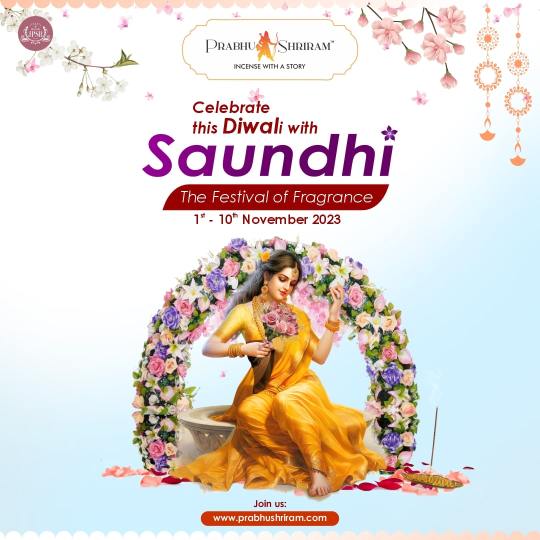
India's FIRST ONLINE Fragrance Festival has arrived!
Welcome to the enchanting FESTIVAL OF FRAGRANCE. It’s time to immerse yourself in a world of delightful scents and thrilling surprises! Enrich your understanding of Indian aromatic history with Cultural Quizzes, Interactive Games, a range of Festive Gifts, Blessing Coin showers, and exciting deals, EVERY DAY.
For all you fragrance lovers, hop on to an aromatic rollercoaster like never before. It’s not just a festival; it’s a fragrant bliss you won’t want to miss!
0 notes
Text
5 Fragrances to Welcome Diwali Guests this Festive Season
Reading time- 4 mins
Diwali, the festival of lights, is a time of joy, celebration, and togetherness. As you prepare to welcome guests into your home during this auspicious occasion, creating the perfect ambiance is essential. One way to do this is by using delightful fragrances that not only infuse your space with a sense of festivity but also leave a lasting impression on your visitors.
India is known for its rich heritage of aromatic traditions. Each city of this vibrant nation is full of diverse aromatic wonders and here, we present five Indian fragrances that are perfect for welcoming guests during the festive season of Diwali:
Sandalwood (Chandan)
Sandalwood, or "Chandan" in Hindi, is one of the most revered fragrances in India. Its woody, sweet, and creamy scent is often associated with divinity and purity. You can use sandalwood incense sticks, essential oils, or even sandalwood-infused potpourri to create a serene and welcoming atmosphere in your home. Sandalwood's calming properties can also help set a relaxed mood during the Diwali festivities.
Jasmine (Mogra)
Jasmine, known as "Mogra" in Hindi, is a fragrant flower that blooms in abundance during Diwali. Its sweet, floral scent is associated with love and positive energy and is reminiscent of the festive season. You can place fresh jasmine flowers in vases, string them into garlands, or use Mogra (Jasmine) Incense Sticks to fill your home with the enchanting aroma of this beautiful flower. The aroma of jasmine will undoubtedly create an inviting and lively atmosphere for your guests and commemorate the feeling of Diwali.
Spicy Amber
During Diwali, Indian homes come alive with the aroma of various spices and herbs being used in traditional recipes. The scent of cardamom, cloves, cinnamon, and other spices can be incredibly inviting. You can enhance these aromas by lighting strong Amber Incense Sticks or Kasturi Incense Sticks to bring the spices on your stove alive. The result is a warm, comforting atmosphere that celebrates the culinary delights of the Indian festival.
Rose (Gulab)
Rose, or "Gulab" in Hindi, is another fragrance that signifies love and beauty. Its sweet, floral notes are often associated with romance and sensuality. You can place fresh rose petals in bowls of water or create decorative patterns with them on the floor. Alternatively, Rose Incense Sticks or Rose Petals Incense can also be used to infuse your home with this classic fragrance. The scent of roses will create a soothing and welcoming ambiance.
Parijat (Night Blooming Jasmine)
Diwali is a time for prayers and rituals, and the use of Parijat or HarShringar, collectively known as the Raat ki Rani, is a beautiful reminder of the beginning of the winter breeze in India. This enchanting fragrance has a mystical and spiritual quality that adds depth to your Diwali celebrations. Parijat is revered as the favorite flower of Maa Durga. Burning Parijat Incense Sticks or using pure essential oils with the Diwali Puja ceremony will create an atmosphere of sanctity and reverence, perfect for welcoming guests and performing traditional rituals.
Diwali is a time for celebrating the victory of light over darkness and the triumph of good over evil. The fragrances you choose to use in your home are crucial in setting the mood for this special occasion. The five Indian fragrances mentioned above - sandalwood, jasmine, Amber, Rose, and Parijat - are not only culturally significant but possess unique qualities that can enhance the festive spirit of Diwali.
In India, fragrances are not merely pleasant scents but also carriers of history, culture, and emotions, making them an integral part of the nation’s identity. The allure of Indian fragrances remains as potent today as it was in ancient times, a testament to the enduring power of these aromatic treasures.
At Prabhu Shriram-Incense with a Story, we are deeply committed to preserving and celebrating the intricate and profound fragrance heritage of India. Our brand’s devotion to curating unique and culturally rich products aligns seamlessly with the narrative of Indian fragrances. Just as our incense products are a journey through time and tradition, they also celebrate the scents that have resonated through the bylanes of India’s history.
As you prepare to welcome your guests during Diwali, consider using these fragrances to create an inviting and memorable atmosphere. By doing so, you'll ensure that your home is filled not only with the warm glow of Ghee diyas and colorful rangoli but also with the delightful scents that encapsulate the essence of this beautiful festival.
0 notes